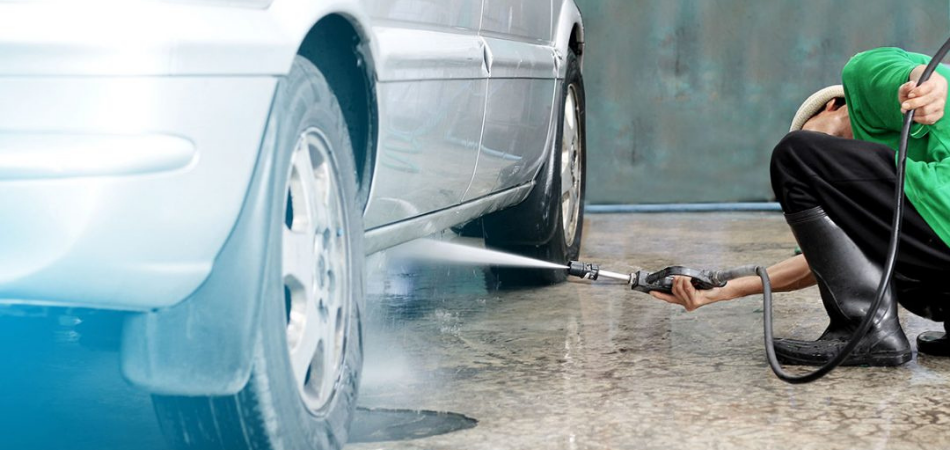Undercarriage damage to vehicles from road salt and other causes can lead to rust. Frequent undercarriage washes can help prevent rust by washing off elements like salt and chemicals that cause corrosion. An undercarriage wash will also clean out the fender wells, which trap moisture that causes rust. So, does undercarriage wash prevent rust?
Yes, washing the underside of your car with an undercarriage wash prevents rust. Your car’s undercarriage is coated with a layer of anti-rust paint when it is manufactured. But over time, that paint can chip or wear away and leave the bare metal exposed to the elements.
The application of Undercarriage wash uses water pressure to force dirt, mud, and salt off the undercarriage of your car or truck. This can help prevent rust and other corrosion from forming on the engine, wheels, and exhaust.
In its way, it helps a lot to remove the dirt but not rust, and you can find more information on this topic below.
Contents
What Is Rust?
Rust is a chemical reaction that causes corrosion to a car when not handled properly. For rust to occur, three elements are necessary: iron, oxygen and water. When iron becomes damp, it breaks down into oxygen and water.
The newly formed 02 then sips into the iron, causing rust. Car owners need to be careful when it comes to rust, because it can cause extreme damage to the car parts.
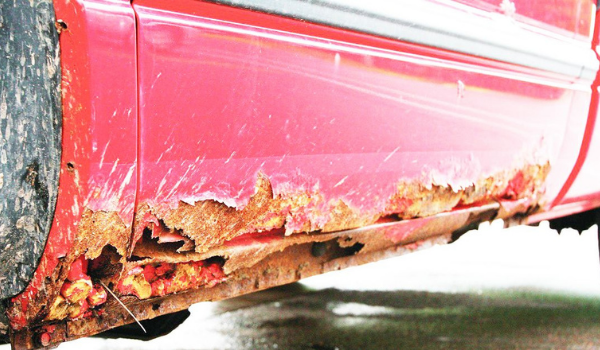
Though, it is assumed that car paint should protect it from scratches and rust, however dirts and salts can remove the protective surface on the car making it easily vulnerable to rust.
Categories of Rust that Can Affect Your Car Undercarriage
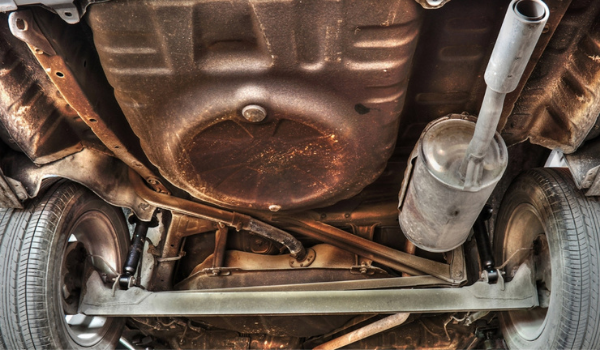
While there are many types of rust, your car will probably suffer from these rust types:
- Surface Rust:: This rust usually affects the top layer of your vehicle surfaces. It happens in nicks and Car body panels. It is ideal to treat this type of car rust before it spreads to other parts.
- Scale Rust: This type of rust happens when surface rust has degenerated. Usually, this is caused by road salt and could affect any part of the car.
- Penetrative Rust: This is a dangerous type of rust and sometimes can be irreversible. When you fail to treat scale rust, eventually your car undergoes penetrative rust, which might make you change car components.
How to Protect Your Car from Rust?
Washing your car undercarriage can help reduce and prevent your car from getting rust easily, however, here are some others way to protect your car from rust:
1. Avoid Regular Car Scratches
Although it is sometimes difficult to avoid accidents because it might be out of your hand, you can do the following to avoid rust:
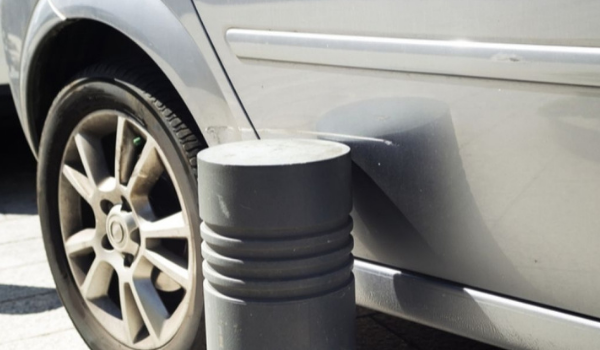
- Park your vehicle under a protective shade to prevent bird excretion (Bird excreted has harmful chemicals which can destroy car paints).
- Don’t park your car close to others in the park. Try to leave some space (about 4cm).
- Avoid putting heavy loads on your car roof.
- Try to avoid driving your car on bad roads and potholes.
2. Know Your Car’s Weak Spots
To prevent rust, you will need to find all the little areas where dirt and water hide. Check these areas:
- Beneath car trims and moldings.
- The connection joints of side mirrors.
- Car antennas.
- All visible cracks on the car surface.
For proper cleaning, you can use a pipe cleaner to remove any moist you find.
3. Coat Your Car Parts Using Lubricants
Now that you have discovered where your car is susceptible to rust, it’s now time to use some chemicals to prevent it. You can use WD-40 multi-use lubricant to help protect your vehicle and keep its parts dry.
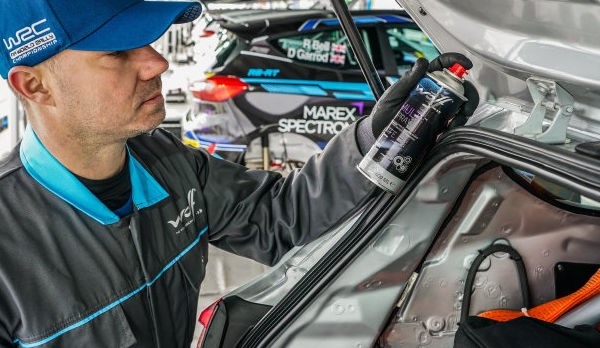
This lubricant works well because it penetrates the areas of all the car parts and keeps them from oxidizing.
4. Check Weather Conditions
There are other weather conditions that cause humidity. During winter, salt is used to remove snow from the rust. When you drive, the remnants of the salt might stick to your car undercarriage and eat it away.
What Causes Rust in Cars?
Rust happens when iron reacts with moisture and oxygen. This brings out some reddish brown color which leads to corrosion.
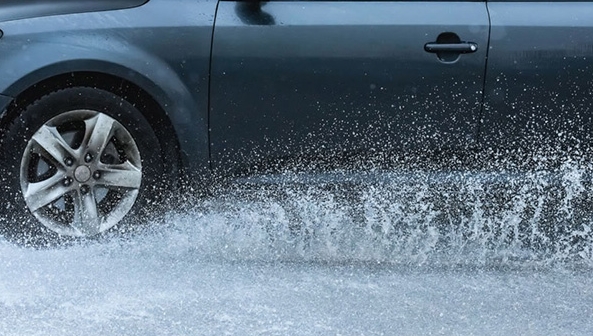
Rust usually occurs in cars because of the following:
- Climate: When your car is regularly exposed to rain, sun and slow, the chances of rust happening are increased. The salts in the snow roads also accelerate the corrosion process in cars.
- Age: Irrespective of how we take care of our car, time tells. Wear and tear usually sets in on the car, which makes it vulnerable to rust.
- Materials: When considering materials used to make older cars, they are mainly non – reactive materials, which makes them more prone to rust than new cars. Newer cars have arch liners which help protect their wheels from rust.
- Mode of Driving: How you use your car can be a factor to cause rust. If you have a rough driving style, you are putting your car at risk. This is because your car is prone to dirt, scratches and accidents.
Factors to Consider Before Removing Rust
When your car eventually falls to rust, you can try to remove them yourself. However, you will need some tools and materials to help you remove the rust. Some tools needed are Angle grinder, body filler, wire brush, sandpaper iron or wire brush sanding block, scrubbing compound, spirits.
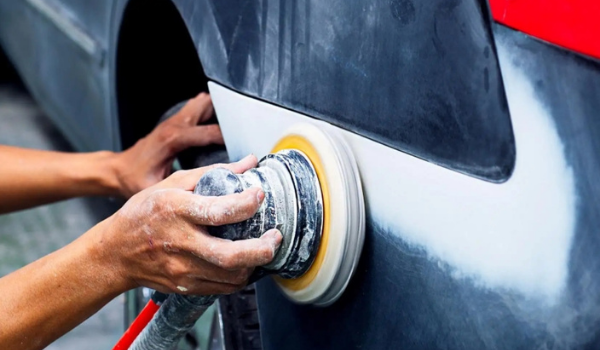
However, note that the decision to remove the rust yourself hinges on several factors:
- Extent of Rust: If your car rust is at the early stage, then removing them yourself could be easy. However, when it has been left for long and is now a penetration rust, you might need to call professionals.
- Cost: Your budget will determine if you can do it yourself or call experts. If you can raise around $250-400 dollars, calling rust removal professionals might be your best bet.
- Spare Time: Working-class people might not have enough time to spend shopping for tools and rust removal products. If, however, you have enough time to spare or work at home, you can do it yourself.
What Are the Best Car Rust Removal Solutions Available?
There are numerous rust removal agents you can use to remove rust from your cars. There are home-made rust removal solutions and top lubricants and chemicals which can remove rust quickly.
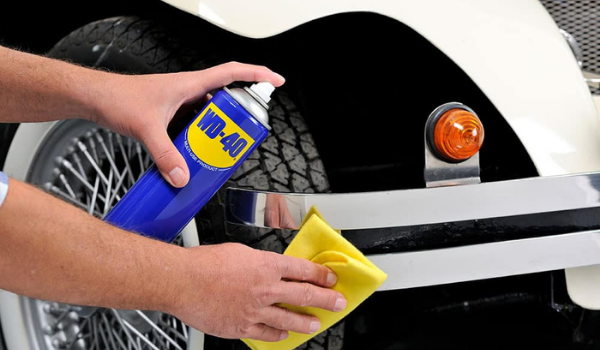
Here are the best rust removing solutions for your car:
- Chemicals: There are some reliable lubricants and chemicals which can remove rust quickly from your car. Good examples are WD-40 and lime-a-away. They might be a little expensive, but they will do a good job in removing all car rust.
- White Vinegar: Vinegar is a homemade solution to remove rust from your car undercarriages. You can sip a clean cloth in vinegar and swipe the rust part with vinegar. Leave for some minutes, then use an iron sponge to scrub gently.
- Baking Soda and Potato: These are also natural solutions in removing rust from cars. Pour the baking soda in water and stir till it forms into a paste, then use the paste to smear the rusted part. Leave for a few hours. Then use a sponge to scrub. For the potatoes, slice into two, then use one part to scrub the rust car parts till it wears off.
Conclusion
Car owners are worried about rust happening to their cars undercarriage. That’s why they ask: does undercarriage wash prevent rust?
Yes, it does prevent rust because it helps get rid of dirt. Preventing your car from rust is the best solution and you can do this by avoiding car scratches, driving safety and finding your car’s weak spots. When rust eventually happens to your car, it is better to remove it at the surface stage, than when it reaches penetrative rust.
Using some homemade rust removing solutions and chemicals can help remove rust quickly.

